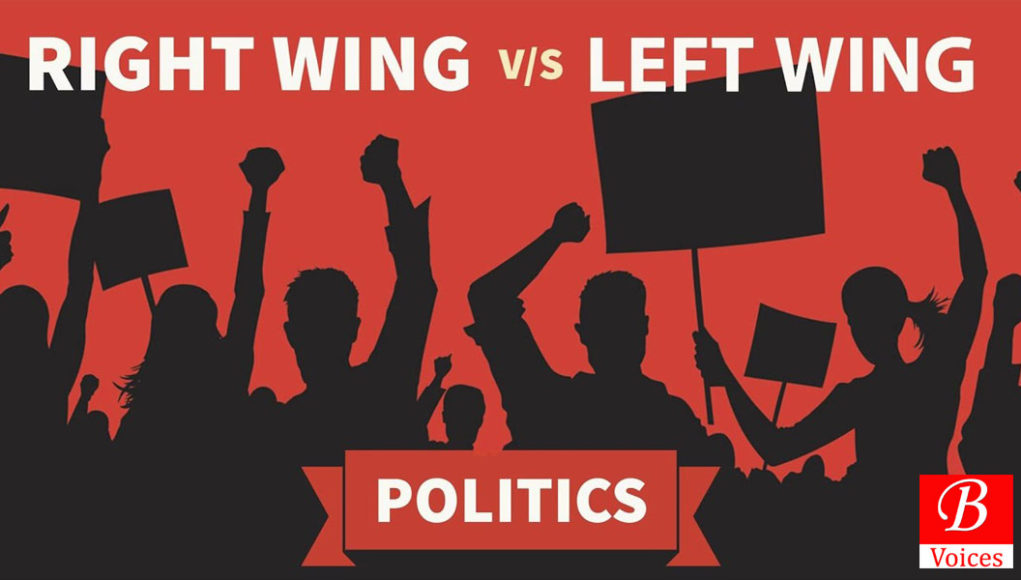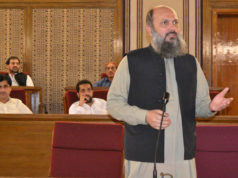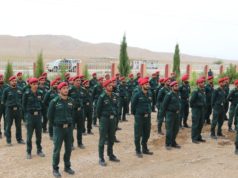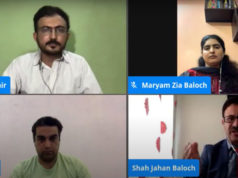 Babar Zehri
Babar Zehri
Pakistan lives through a critical juncture. Notwithstanding sanguine claims by the governing elite, indigence has endured, inequality has proliferated exponentially, and discrimination- based on gender, cast and ethnic categories- has become hallmark of the polity.
Against this backdrop, the leftist political front has consistently failed to offset the hegemonic discourse of the populist forces or economic trajectories that uplift the wealthy middle classes, while simultaneously compounding inequality and furthering the plight of the poor lot. Despite past record of remarkable achievements on its part, the contemporary left in Pakistan lacks any reasonable weight and radical political roadmap or design. The prevalent crises confronting the political left in Pakistan have consumed its operative vigor and vitality.
Very early on the leftist parties faced repressive and dictatorial regimes in Pakistan. As a result, they had to deal with two exigent concerns: first, the struggle for democratic rule against authoritarianism, and second, the need to end the persecution.
The history of Pakistan is replete with incidents when the hegemonic forces of the state resorted to large-scale persecution of the leftist factions during the Cold War when the country was at the forefront of anti-Communist alliances with the US. Despite threatening circumstances, the left in Pakistan wielded a significant influence on the social and political formations until the 1980s. However, the little leeway the Left boasted dwindled as the Soviet Union was buried in the mists of history by the close of the 20th century.
In addition, the modern left faces an identity crisis in wake of transformations in the international political economy associated with neo-liberalism. Nevertheless, the withdrawal of the Pakistani Left has been more calamitous and enduring than most.
In pre-independence era the left in the Subcontinent was motivated by the goal of anti-Imperialism. In post-independence period it is concerned with the project of anti-Capitalism marked by an endeavor for transitional democracy.
Moreover, Pakistan’s partnership with the ‘Western Imperialism’ in combating Communism resulted in policies professedly intolerant towards the leftists. In 1954, Pakistan banned Communist Party of Pakistan (CPP) and, for the rest of the Cold War, the left worked through different channels spearheaded by political and cultural allies.
By the late 1990s, the left had virtually lost its political consequence, remained unable to sustain significant support base among the populace and wielded no meaningful influence on either intellectual or political reflection in wider Pakistani society. From the 1990s well into the turn of the century, the left more or less vanished from the public realm. The progressive factions coalesced around civil society outfits.
Ironically, modern leftist projects have hardly ever expanded beyond the efforts to repugn accumulation by dispossession. That is, leftist movements have only politicized up to a specific extent, and have not triumphed in comprehensively transforming the corporate or state attitude. Inter alia, in Pakistan the left has been characterized by severe fragmentation and factionalism. As a consequence, it becomes hard to draw a systematic sketch of the left’s political activism in the country.
In this context, identification of the constraints of resistance has generated critical arguments among the new cohort of leftists as to the scale to which the political organization is still an essential vehicle for orchestrating radical political-ideological scaffolding in Pakistan’s social setting.
Thanks in part to the arrival of young breed of the leftist cadre, generational strains are apparent within the new left establishment. The traditional leftist clique is held up to the conviction that the progressive activism can be carried forward only through imitating traditional methods and organizational paradigms. Whereas the new generation of the left activists is apprehensive of classical Marxist ideology and organizational models, conceivably in the sense that they stymie the substance of spontaneity which should imbibe the modern drives for liberation.
As a matter of fact, the invention of a political vehicle for left ideas and practice represents both link to and break with the understanding of the 20th century left. This channel should be a natural one that must epitomize the motley political subjectivities which have come to characterize the unfolding post-modern epoch. Yet it also must concomitantly continue underscoring the cardinal doctrines of class struggle. Along with this, organizational patterns also need to extend beyond the 20th century underground ethos and underrepresentation of the key constituencies, for instance women, needs to be dealt with in a very direct and earnest manner.
It is requisite for a left political vehicle to differentiate the anti-systemic radical political conduct from a more motley civil society that implicitly or explicitly serves to shore up neo-liberalism, or for that matter war of imperialism.
Apart, in an era of terrorism, the Pakistani liberal clique that assumes the identity of civil society, tends to back undemocratic and even imperialist forces under the excuse that they form optimal means to curtail the menace of religious right. Doubtless, the threat of religious right is formidable, considering the latter has managed to absorb the classical speak of the left by projecting itself as the lead in the struggle against anti-imperialism.
However, there is a great deal of optimism that the contemporary left, by forgoing scaremongering and pondering over the sociological origins of the right-wing religiosity, can identify its lacunae and strengths for novel social and political mobilizations so as to supplant religious right.
Left’s marked factionalism, much less liberal censure, consistently divests it of its strength and resource. There is also an exigent need to revise analyses in relation to state and social setting. That is, the classical left’s spurious understating and political interaction with issues of ethnic-nationalism, caste and gender, need to be rectified. However, Pakistan’s contemporary experience with revolutionary politics possesses its own dialectic that will drive the movement ahead.
The writer is a freelance columnist. Email:[email protected].
Disclaimer: Views expressed in this article are those of the author and Balochistan Voices not necessarily agrees with them.
Share your comments!








